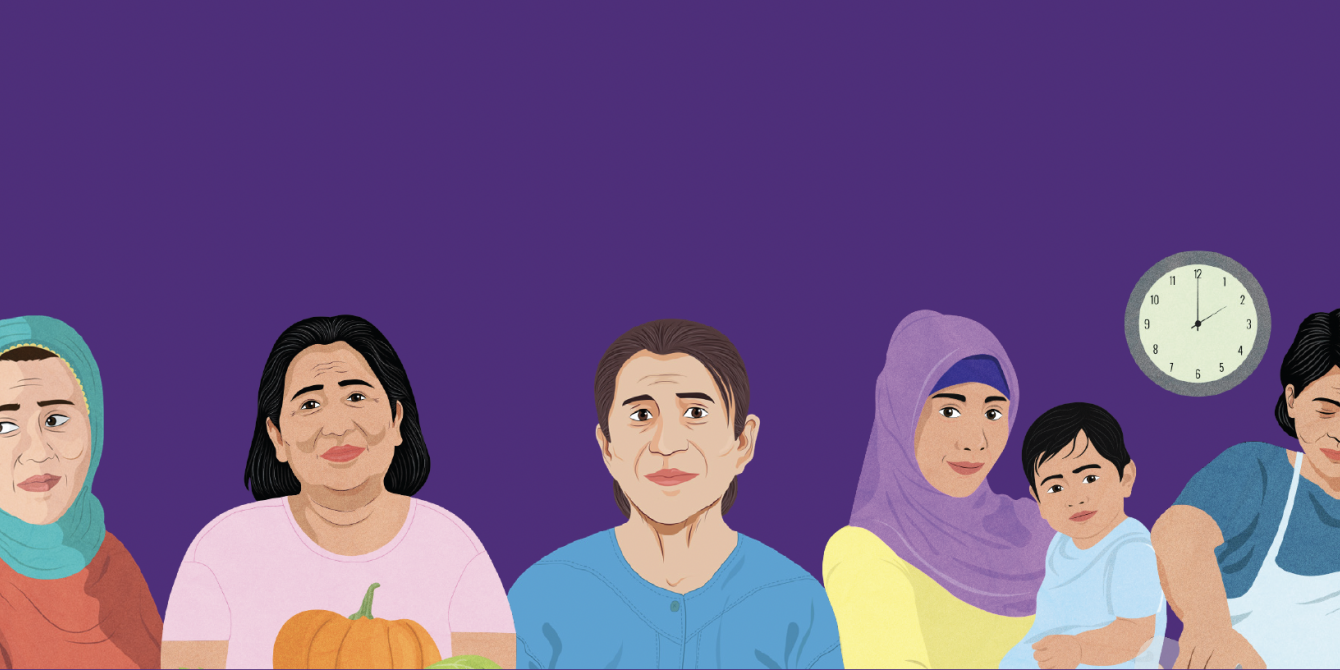Women Journeying towards Peace: Ensuring Meaningful Participation and Economic Empowerment of the Bangsamoro Islamic Women Auxiliary Brigade (BIWAB) and Bangsamoro Women

After years in revolutionary struggle, how can the Bangsamoro Islamic Women Auxiliary Brigade (BIWAB) reintegrate meaningfully into society? After years of living in conflict, how are the needs of civilian Bangsamoro being addressed? What socio-economic frameworks, policies and programs can address their gendered and intersecting needs? How can they contribute to the creation of a just and peaceful environment?
The study finds answers to these questions by examining the narratives of officers and rank-and-file members of BIWAB and civilian Bangsamoro women. Focus group discussions and interviews were conducted as spaces to share their experiences, challenges, aspirations, as well as their needs to rebuild their lives.
The narratives point to the challenges women continue to face as they try to balance multiple roles and gendered expectations as former combatants, mothers, and income earners. Their stories highlight the compounding effects of climate change and conflict, the struggles they face from the lack of financial support and economic opportunities, as well as the difficulty of accessing programs when they were available because of tedious bureaucratic processes.
This research is supported by the Australian Government through the Women’s Empowerment for Leadership in Development and Peace in the Bangsamoro (WELD-Peace) Project, a three-year project implemented by Oxfam Pilipinas with the Al-Mujadilah Women’s Association, Inc. (AMWA), United Youth of the Philippines (UnYPhil) Women, Tarbilang Foundation, Inc., along with Women Engaged in Action (WE Act 1325), a network of women’s and peace groups. It covers six (6) provinces of the Bangsamoro Autonomous Region in Muslim Mindanao (BARMM) and seeks to support the region’s peaceful transition to an exclusive and broadly supported regional governance structure by building women’s capacities to influence and shape local peace and development processes.
Oxfam commissioned this research to gain more insights into the practical and strategic needs of the members of the BIWAB and civilian Bangsamoro women. It highlights the linkages between women’s economic empowerment and women’s ability to exercise leadership in Bangsamoro communities. It is hoped that findings inform rehabilitation and development programs in BARMM that would equally benefit all members of the Bangsamoro community.

 Follow us on Facebook
Follow us on Facebook Instagram
Instagram Follow us on Twitter
Follow us on Twitter LinkedIn
LinkedIn